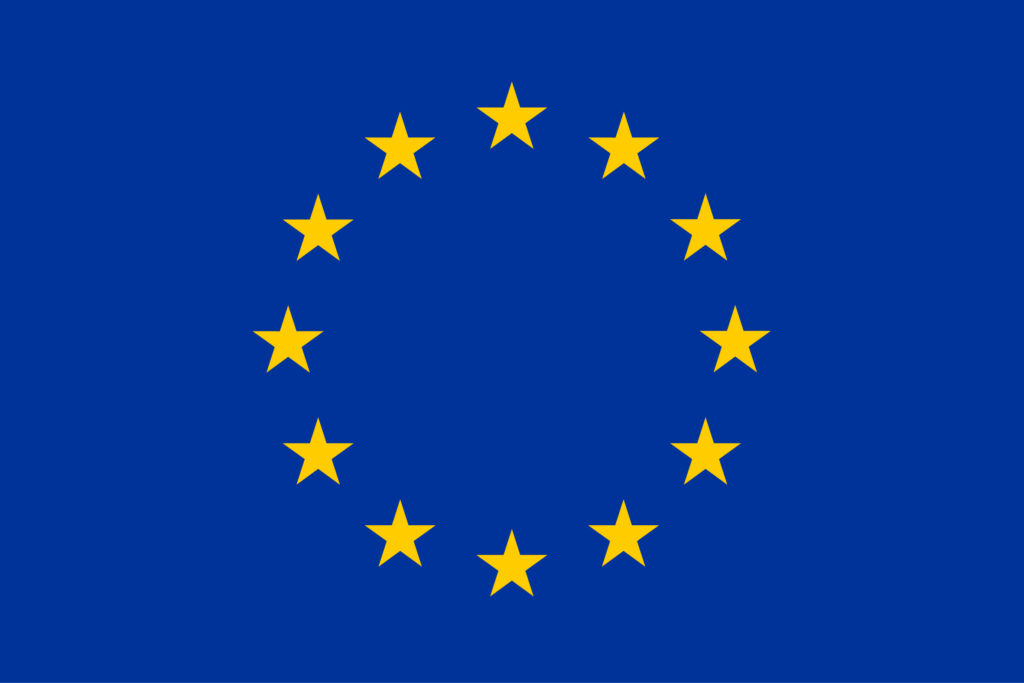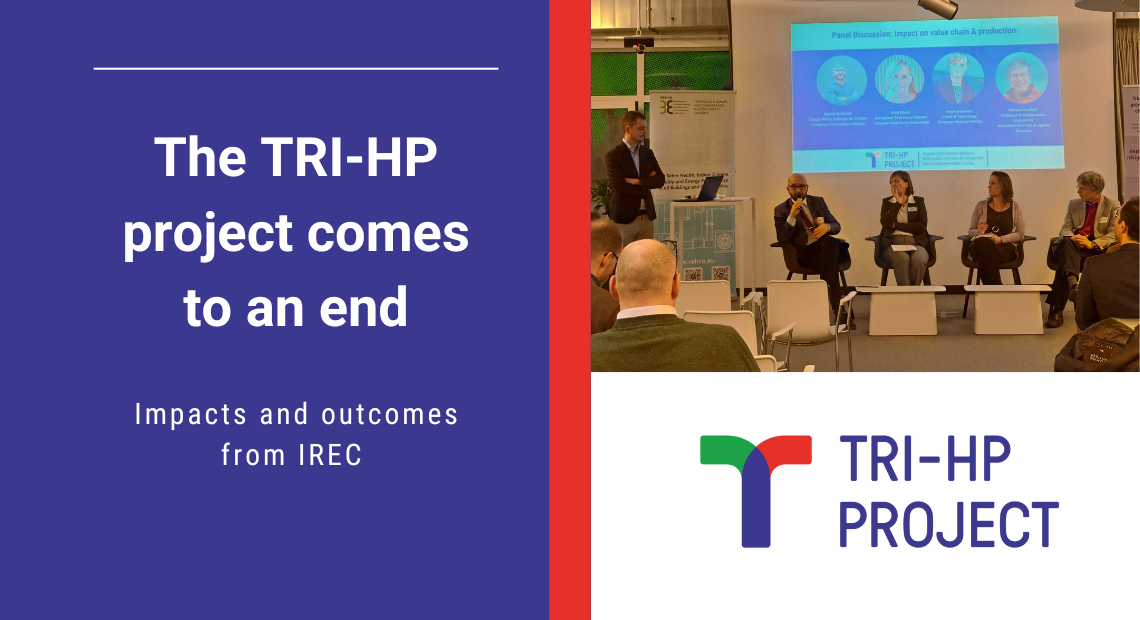On Tuesday 7th February 2023 took place in Brussels the final event of the TRI-HP project, whose research has focused on tri-generation heat pump systems for multi-family buildings. In this project, two complete heat pump systems were developed and brought from TRL 3 to 5: the first is a dual source heat pump, able to exchange heat both with the ambient air or through a geothermal borehole, and the second a solar ice slurry heat pump, which uses an ice slurry tank as heat source, regenerated by solar thermal collectors. The prototypes created in the project use natural gases as refrigerants, either propane or CO2, which have lower global warming potential and will become the standard in most heat pumps in the near future.
The contribution of IREC, led by the Thermal Energy and Building Performance and the Energy Systems Analytics groups, consisted in a first part in developing the advanced energy management system (AEMS), able to operate such complex systems in a more efficient manner. For this purpose, simplified models of all the systems were fitted, as well as connection to forecasts, to test the benefits of this advanced control strategy in given conditions. Computer simulations, as well as experimental tests at the SEILAB facilities of IREC in Tarragona were conducted to evaluate the performance of the systems with and without the AEMS control. The results show that at least 10% of cost savings can be achieved in the operation of the system during a typical year in a Spanish climate. The second part of IREC contribution included the development of algorithms of fault detection and diagnosis: they monitor the heat pump and inform the user if its efficiency drops. These algorithms were also tested in lab experiments where they could detect an efficiency drift of at least 7%, as well as give a correct diagnosis of the type of fault (refrigerant leakage, evaporator fouling etc…).
The final event concluded a successful project that lasted from 2019 to 2023. Although disturbed by the pandemic, the team of 11 partners managed to bring forward interesting results along these 4 years, with the development and testing of innovative components such as the dual-source heat exchanger, and their assembly into the three heat pump prototypes. The final meeting was followed by a workshop focused on the upcoming EU regulation on the ruling out of F-gases. F-gases are the current refrigerant used in most heat pump systems, but they have a very high global warming potential. The EU plans to ban most of them in an upcoming regulation, in the context of a boom of the heat pump market (increase of +34% units sold in 2021 in Europe). The very interesting debate brought forward different viewpoints on how and in which terms this transition should be organized. The representatives from the heat pump and refrigeration industries are more conservative and ask for more time to train their personnel and upgrade their supply chains to the new refrigerants, which present new challenges such as flammability or toxicity. The European commission wants to lay out ambitious plans to phase out F-gases rather fast in order to fight climate change, hoping for a fast reaction on the industry. The academic world and the partners of the TRI-HP project generally see natural refrigerants as the future of heat pumps and support a fast transition towards this type of systems. The round table thus introduced various arguments from different sides and resulted in a very complete and interesting debate at the heart of European policy-making, Brussels.
In the last months of the project, several dissemination videos were produced, introducing the main concept of TRI-HP, including one with material recorded in IREC in Tarragona. More information can be found in the project website.
Acknowledgements: the project is funded under grant agreement No. 814888 as part of the European Union’s Horizon 2020 research and innovation programme.




